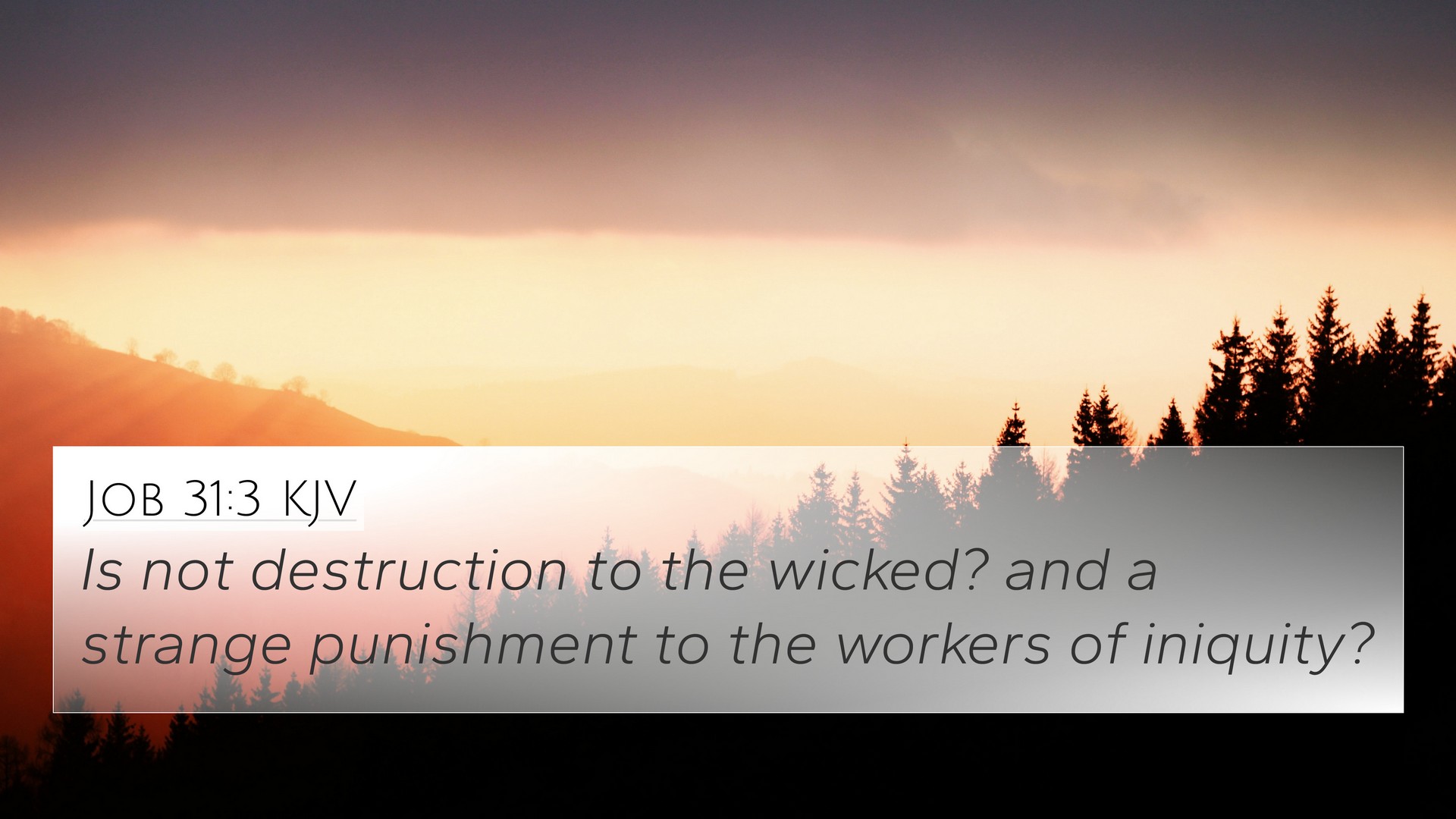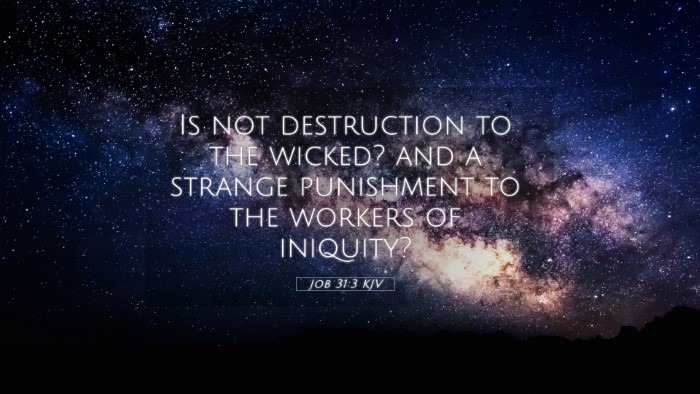This section features a detailed cross-reference designed to enrich your understanding of the Scriptures.
Below, you will find carefully selected verses that echo the themes and teachings related to Job 31:3 KJV. Click on any image to explore detailed analyses of related Bible verses and uncover deeper theological insights.
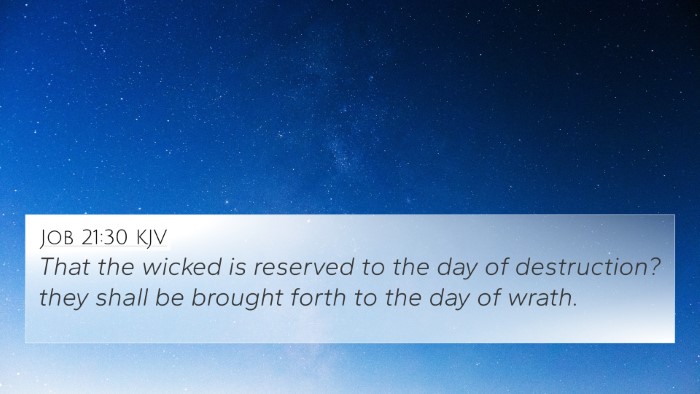 Job 21:30 (KJV) »
Job 21:30 (KJV) »
That the wicked is reserved to the day of destruction? they shall be brought forth to the day of wrath.
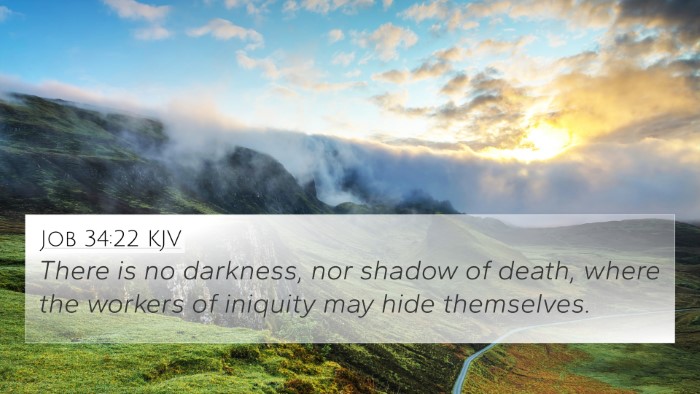 Job 34:22 (KJV) »
Job 34:22 (KJV) »
There is no darkness, nor shadow of death, where the workers of iniquity may hide themselves.
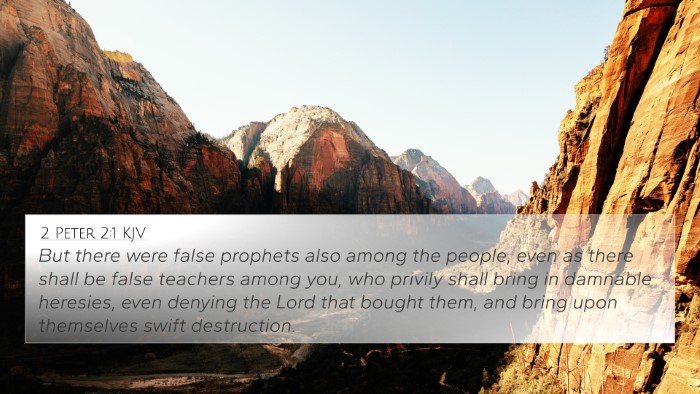 2 Peter 2:1 (KJV) »
2 Peter 2:1 (KJV) »
But there were false prophets also among the people, even as there shall be false teachers among you, who privily shall bring in damnable heresies, even denying the Lord that bought them, and bring upon themselves swift destruction.
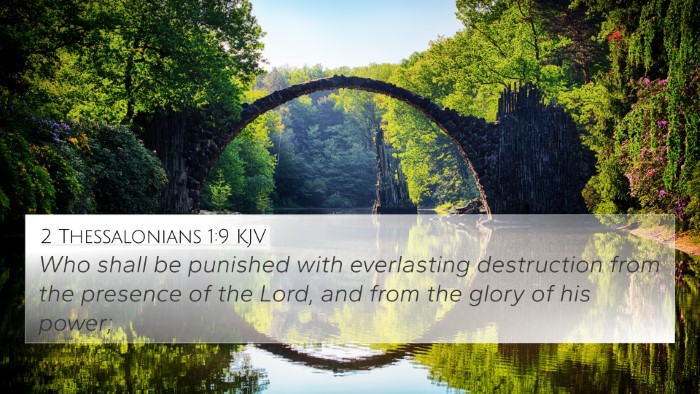 2 Thessalonians 1:9 (KJV) »
2 Thessalonians 1:9 (KJV) »
Who shall be punished with everlasting destruction from the presence of the Lord, and from the glory of his power;
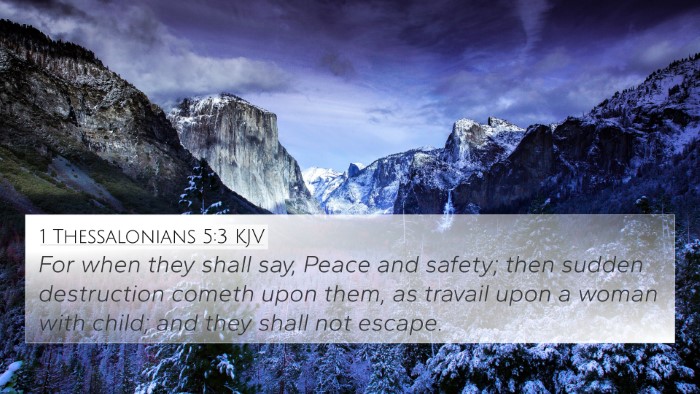 1 Thessalonians 5:3 (KJV) »
1 Thessalonians 5:3 (KJV) »
For when they shall say, Peace and safety; then sudden destruction cometh upon them, as travail upon a woman with child; and they shall not escape.
 Romans 9:22 (KJV) »
Romans 9:22 (KJV) »
What if God, willing to shew his wrath, and to make his power known, endured with much longsuffering the vessels of wrath fitted to destruction:
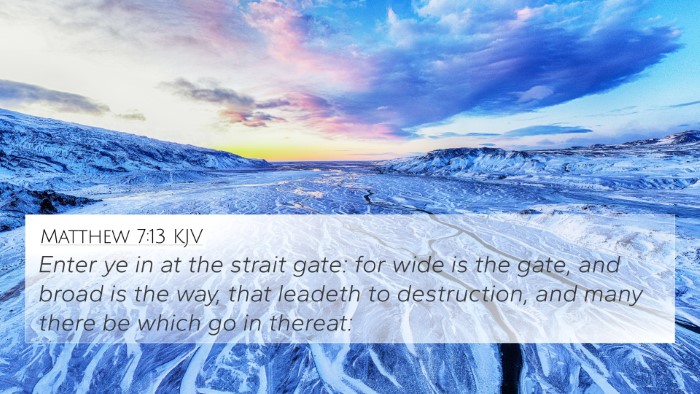 Matthew 7:13 (KJV) »
Matthew 7:13 (KJV) »
Enter ye in at the strait gate: for wide is the gate, and broad is the way, that leadeth to destruction, and many there be which go in thereat:
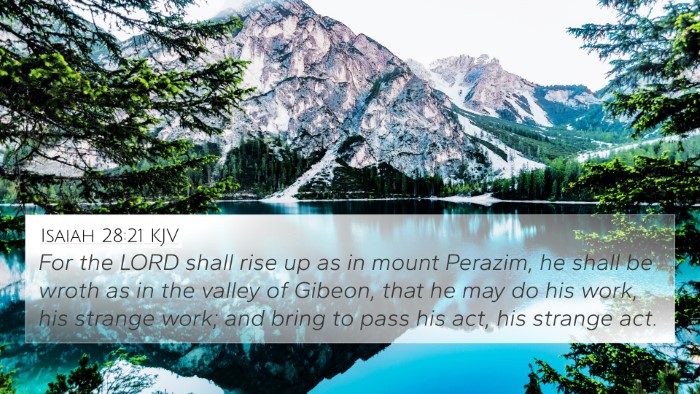 Isaiah 28:21 (KJV) »
Isaiah 28:21 (KJV) »
For the LORD shall rise up as in mount Perazim, he shall be wroth as in the valley of Gibeon, that he may do his work, his strange work; and bring to pass his act, his strange act.
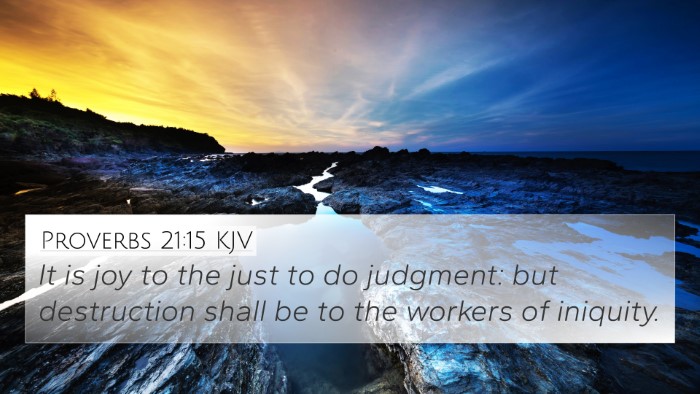 Proverbs 21:15 (KJV) »
Proverbs 21:15 (KJV) »
It is joy to the just to do judgment: but destruction shall be to the workers of iniquity.
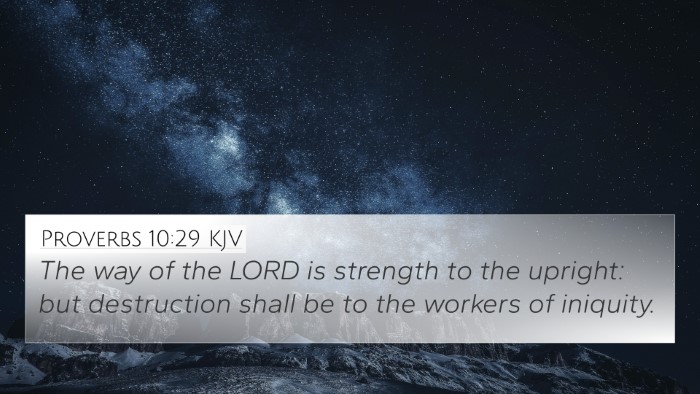 Proverbs 10:29 (KJV) »
Proverbs 10:29 (KJV) »
The way of the LORD is strength to the upright: but destruction shall be to the workers of iniquity.
 Proverbs 1:27 (KJV) »
Proverbs 1:27 (KJV) »
When your fear cometh as desolation, and your destruction cometh as a whirlwind; when distress and anguish cometh upon you.
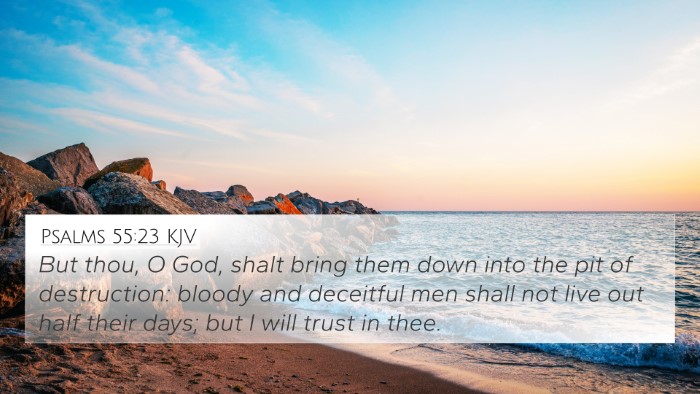 Psalms 55:23 (KJV) »
Psalms 55:23 (KJV) »
But thou, O God, shalt bring them down into the pit of destruction: bloody and deceitful men shall not live out half their days; but I will trust in thee.
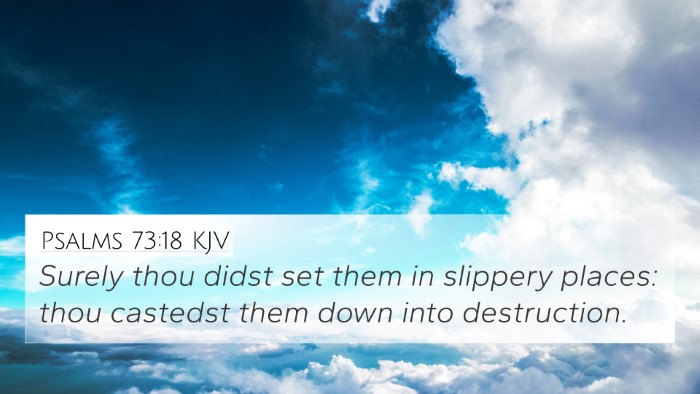 Psalms 73:18 (KJV) »
Psalms 73:18 (KJV) »
Surely thou didst set them in slippery places: thou castedst them down into destruction.
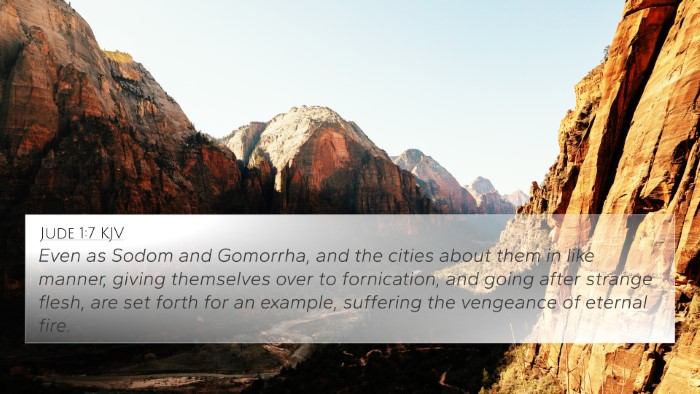 Jude 1:7 (KJV) »
Jude 1:7 (KJV) »
Even as Sodom and Gomorrha, and the cities about them in like manner, giving themselves over to fornication, and going after strange flesh, are set forth for an example, suffering the vengeance of eternal fire.
